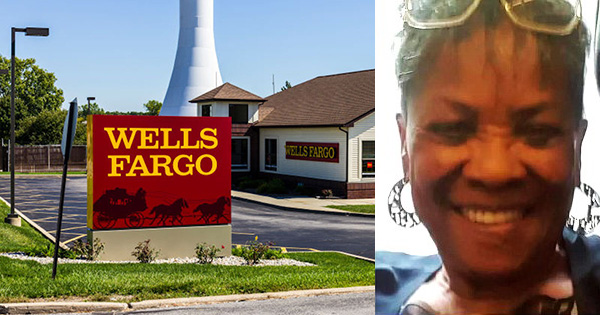
Barbara Carroll, elderly woman discrminated against at Wells Fargo
Fort Lauderdale, FL — Barbara Carroll, a 78-year old Black woman, was just trying to cash a $140 check at Wells Fargo when she was racially profiled by a teller and a manager who decided to call 911 because they were suspicious of her. Carroll, who is a professional with a PhD, filed a lawsuit of racial discrimination against the company.Last November, Carroll went to a Wells Fargo branch in an upscale neighborhood of Victoria Park in Fort Lauderdale to cash her check. It would have been a fast transaction but she had been there waiting for two and a half hours and the employees still wouldn’t cash her check.
Apparently, the employees were suspicious that Carroll was guilty of forgery. That is even after the man who issued the check confirmed it was legitimate.
It started when Carroll gave the check to the teller, who was a white woman, and she was asked for her ID. She gave her driver’s license and passport but she was told to wait by the lobby because there was a problem.
She waited for half an hour until she asked for the manager. The manager, who was also a white woman, refused to return her check and identification and told her that she called the police.
After waiting for another half-hour, Carroll called 911 herself. Two officers showed up and confirmed that Carroll’s identification is valid.
Carroll eventually got her cash. But the humiliation and anger she felt remains.
“I felt very embarrassed,” she told New Times. “I felt belittled. I can’t tell you the emotions I felt.”
Carroll, who was a former probation officer and assistant bank manager, believes that she was treated that way because of her skin color.
“Things that we — and we being black people — things that we feel are sometimes brushed over, like, ‘Oh, she was just doing her job,'” Carroll said. “It’s a difference, and you can sense the difference.”
Last week, Carroll decided she had to step up against what she describes institutional racism. She had filed a lawsuit which accuses Wells Fargo of racial discrimination.
Wells Fargo spokesperson Rosanna Fiske said in an email statement that the company is aware of the incident but didn’t comment further about their next steps.
“Wells Fargo opposes discrimination of any kind as evidenced by our own non-discrimination policy, our commitment to diversity and inclusion in our work force, and our long-standing history of support for community organizations that embrace diversity,” she wrote.
Carroll, however, said neither the teller nor the manager apologized for their harsh treatment. She wasn’t at all satisfied even when she called Wells Fargo’s corporate office and they only told her unclear explanations about training.
“It was your normal ‘brush you up and make you smile,'” she said.
Yechezkel Rodal, her lawyer, described the incident as another case of people being treated differently because of their race. He and Carroll hopes that the lawsuit could bring change.
“Ultimately, we’re hopeful that this isn’t just about Wells Fargo, that other corporations take notice and realize that there has to be some kind of change in our culture — that these things are not OK,” Rodal said.
